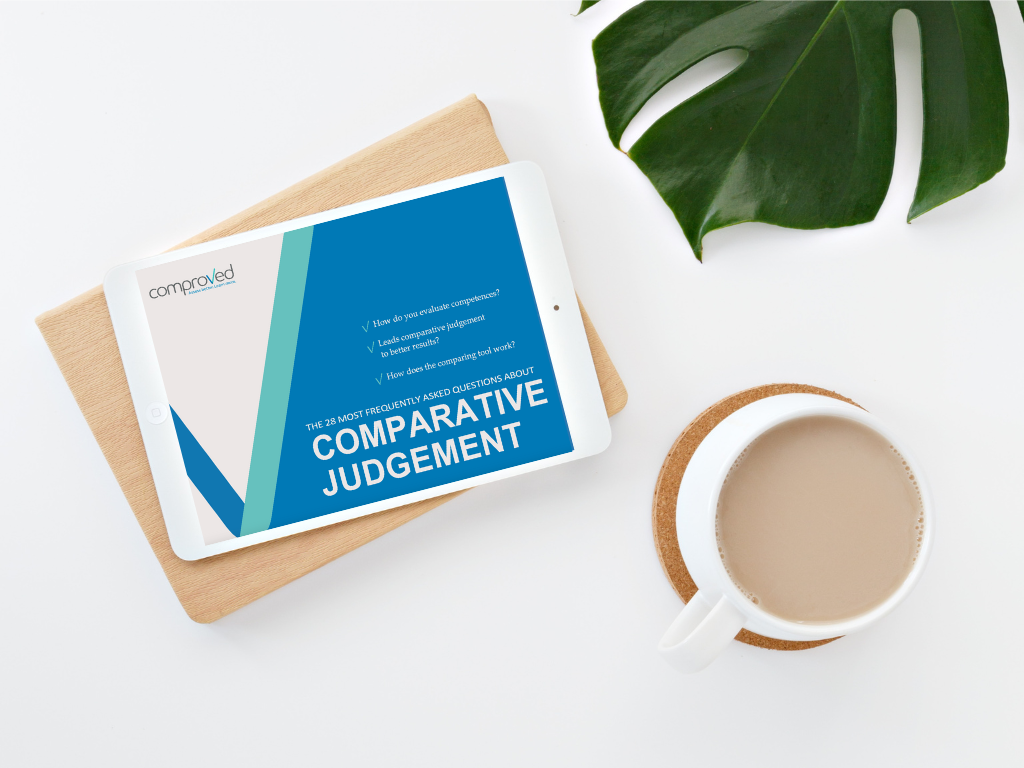
Download E-book
How do you evaluate competences?
Does comparative judgement lead to better results and extra learning opportunities?
How can you implement comparative judgement?
How does the comparing tool work?
Find out everything in the e-book “The 28 most frequently asked questions about comparative judgement”

What our users think of the method:
Who are we?
The three founders of Comproved are educational scientists with a heart for teaching, evaluation, learning and feedback. They continue their scientific research project in collaboration with the University of Antwerp, Ghent University and imec in the spin-off.
They love guiding teachers through their evaluation challenges and are always ready to help with advice and assistance.

Why comparative judgement?
We want to prepare our students for a rapidly changing world by teaching them complex skills in addition to knowledge. Evaluating those complex skills is no easy task. Because what teachers sense from their expertise is confirmed in many scientific studies: when it comes to complex skills, the reliability and validity of traditional assessment methods are often lacking.
We would like to share the knowledge of more than 7 years of research with you through this e-book. We want to provide alternatives and tools for teachers to better find their way in the more complex educational landscape. Comparative judgement is one of those alternatives.
What are the main benefits of comparative judgement?
Those are the reliability and validity of the method and results. And here’s why:
Those who assess comparatively make more consistent decisions: regardless of the time of day or what tasks you've seen before, the same piece of work will stand out in a comparison every time.
Four eyes see more than two, and eight eyes see more than four. By evaluating with colleagues, you achieve higher reliability and validity more quickly.
No colleagues who can co-assess? Then ask professionals from the work field or involve students in the assessment. Students find it difficult to use criteria lists to assess competences, but comparing products with each other usually works fine.
Download the e-book and get answers to all your questions about comparative judgement!
"*" indicates required fields
